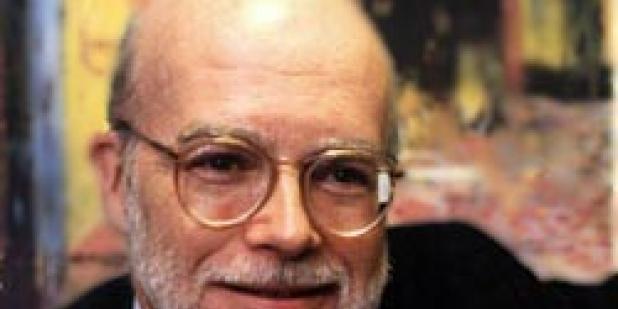Join us for a free one-day workshop for educators at the Japanese American National Museum, hosted by the USC U.S.-China Institute and the National Consortium for Teaching about Asia. This workshop will include a guided tour of the beloved exhibition Common Ground: The Heart of Community, slated to close permanently in January 2025. Following the tour, learn strategies for engaging students in the primary source artifacts, images, and documents found in JANM’s vast collection and discover classroom-ready resources to support teaching and learning about the Japanese American experience.
Cold War Borders in a Post-Socialist World: Hong Kong / China
The UCLA Center for Chinese Studies presents a lecture by James Watson on the fate of international borders that were transformed by the collapse of cold-war socialism and the triumph of global capitalism.
Where

This lecture explores the fate of international borders that were transformed by the collapse of cold-war socialism and the triumph of global capitalism. On February 15, 1951, a muddy creek that separated British Hong Kong from the newly established People's Republic of China suddenly became a front line of the cold war--the Berlin of the East.
Cantonese farmers, including members of a seven-hundred-year-old clan, found themselves separated by a "hot" border, cut off from each other for the next four decades. In 1997 Hong Kong reverted to Beijing's control and the border changed into a Tijuana-style immigration barrier. Today, people in Hong Kong resent the influx of Mandarin-speaking immigrants from north of the border and struggle to maintain a distinctive, local identity. Meanwhile, members of the border-straddling clan (studied by Professor Watson for the past forty years) have revived their pre-1950s ties and are thriving in the new post-colonial, late-socialist environment. The lecture concludes with some general thoughts regarding the uncertain fate of post-Cold War borders and the people who live in their hinterlands.
* * *
James L. Watson is the Fairbank Professor of Chinese Society and Professor of Anthropology at Harvard University. He teaches courses on Chinese society, globalization and culture, and comparative food systems. Professor Watson has gained international recognition as one of the most distinguished and important anthropologists of China.
Watson grew up in New Market, Iowa, and earned a Bachelors degree in Chinese Studies at the University of Iowa in 1965, and a Ph.D. from the University of California, Berkeley (1972) in anthropology.
Professor Watson has spent over forty years conducting ethnographic research in south China, primarily in villages (Guangdong, Jiangxi, and the Hong Kong region). He learned to speak country Cantonese in the Hong Kong New Territories during the late 1960s and has subsequently worked in many parts of the People's Republic (using Mandarin). His research has focused on Chinese emigrants to London, ancestor worship and popular religion, family life and village organization, food systems, and the emergence of a post-socialist culture in the PRC. In recent years Prof. Watson has worked with graduate students in Harvard's Department of Anthropology to investigate the impact of transnational food industries in East Asia, Europe, and Russia.
A reception will follow Professor Watson's lecture.
The lecture series Beyond the Headlines: China and the Global Future brings to UCLA distinguished speakers who are key players in and observers of the global processes that are inextricably linking China's fate and the fate of the rest of the world. Professor Watson's lecture is the second in the series.
Featured Articles
Please join us for the Grad Mixer! Hosted by USC Annenberg Office of International Affairs, Enjoy food, drink and conversation with fellow students across USC Annenberg. Graduate students from any field are welcome to join, so it is a great opportunity to meet fellow students with IR/foreign policy-related research topics and interests.
RSVP link: https://forms.gle/1zer188RE9dCS6Ho6
Events
Hosted by USC Annenberg Office of International Affairs, enjoy food, drink and conversation with fellow international students.
Join us for an in-person conversation on Thursday, November 7th at 4pm with author David M. Lampton as he discusses his new book, Living U.S.-China Relations: From Cold War to Cold War. The book examines the history of U.S.-China relations across eight U.S. presidential administrations.




